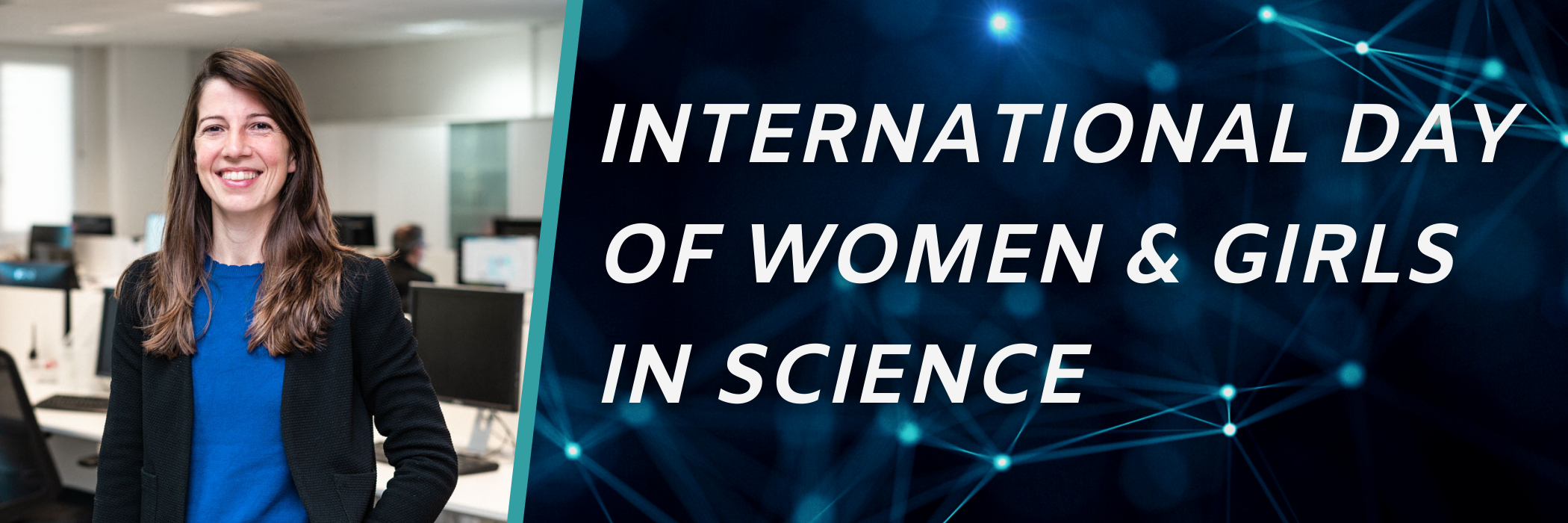On February 11, 2024, the world celebrates the 9th International Day of Women and Girls in Science, advocating for equal opportunities in science, technology, engineering, and mathematics (STEM) fields. As part of our commitment to this cause, we had the chance to sit down with Blanca Lekube, Project Manager and Scientific Researcher at Leartiker in Markina-Xemein, Bizkaia, Spain. In this interview, Blanca shares her inspiring journey in the world of science and her views on the LEVIS project.
What is your background, and what sparked your interest in STEM as well as your specific field of work?
I studied Industrial Engineering in Industrial Chemistry at the University of the Basque Country and Master of Science in Environmental Technologies at the University of Applied Sciences of Upper Austria.
Choosing what to study was difficult for me because I like both the humanities and science subjects, I am a curious person overall. I thought of journalism, but I also liked chemistry a lot, so finally I decided to go for a technical degree. I decided to specialize in Environmental technologies because I have always been very connected to nature in the Basque Country, where we are so lucky to have both wonderful mountains and the sea. That is why I have always been very conscious of the importance of protecting the environment.
I had the opportunity to carry out my Master’s Thesis at the technological center TCKT in Austria, where I discovered the wonderful world of polymers! I learned about a whole new world of possibilities in that field, being able to combine my newfound enthusiasm for polymers and my passion for the environment by focusing on sustainable material development.
Could you describe your role within Leartiker and elaborate on your specific contributions to the LEVIS project?
I work as a Project Manager and Researcher at Leartiker in the technological area of Sustainable Transport. In the LEVIS project, my role is the coordination of the project at Leartiker. As WP1 Leaders (Demonstrator Development), we have been coordinating the works carried out within the three demonstrators of the LEVIS project. We were also the responsible partners for the development of the battery module housing and were also involved in the works related to the cross car beam, such as, among others, the composite-steel overmolding optimization.
Is there a particular female scientist, engineer, or role model who has had a significant impact on your career, and what qualities or achievements inspire you most about them?
I think that both female and male role models are important. I had a very important male role model in my early career, my boss at TCKT, Christoph Burgstaller, whose enthusiasm and vocation for science inspired me greatly. He believed in me and helped me grow by giving me challenges and opportunities at work. Together with that, I have had many female role models, among others my own colleagues from university, as my friend Naroa. We have always supported and learned from each other. We both started our careers in German-speaking environments, where we often found ourselves in situations where we were the only women present – in addition to being a foreigner. In that context, we had to work hard to show our potential. Sharing our experiences and supporting each other was invaluable. Sometimes you just need to look around, and you will find very strong female role models right beside you.
What aspects of your involvement in the LEVIS project do you find most fulfilling, and how do you envision its potential to influence the future of the automotive industry?
The consortium of LEVIS is a multidisciplinary group which allows for combining expertise in different technologies. Thanks to this, it has been possible to propose and work on very interesting and challenging approaches in the different demonstrators, with an eye on their scalability in the industry. I believe that, by developing innovative solutions that are not only technologically advanced but also economically viable for large-scale productions, LEVIS will contribute to the industrialization of lightweight materials, ultimately facilitating the transition towards more sustainable and efficient electric vehicles.
If you could offer guidance to young girls aspiring to pursue STEM careers, what advice would you share with them?
I would tell them the following: trust yourself because you can do everything you want. Just look inside and follow your intuition and those things you are passionate about, and you will find the right way. And if not, you can always go back and choose another path, life is full of possibilities.
